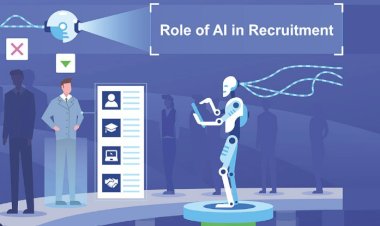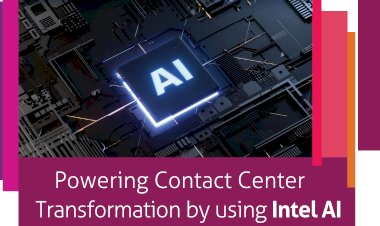The Rise of AI in Marketing Automation: How Technology is Redefining Engagement?

Artificial Intelligence is transforming marketing automation, fundamentally changing the way businesses interact with customers. Through leveraging AI’s strengths, businesses are able to provide customized experiences, forecast consumer actions, and optimize marketing campaigns with unprecedented accuracy.
This revolution is not only increasing efficiency but is also revolutionizing the nature of customer interaction. AI allows marketers to automate workflows, eliminate manual touch points, and adopt deep learning algorithms to recognize emerging trends, thus granting businesses a competitive edge.
As AI technology develops further, organizations which implement it successfully are able to develop stronger customer relationships, boost brand loyalty, and increase revenue growth.
The Evolution of AI in Marketing Automation
The integration of AI in marketing has shifted from simple task automation to sophisticated decision-making processes. At first, automation tools were used to perform repetitive tasks such as scheduling emails and posting on social media.
AI enables these systems today to work with massive data sets, learn from customer habits, and take data-driven marketing decisions. This change enables firms to break out of template-based campaigns, serving up personalized experiences that resonate with individual customers. AI-powered automation enables firms to segment audiences properly, maximizing marketing spend and generating higher return on investment.
Also, AI keeps improving its algorithms based on evolving customer behavior and more precise predictions. Companies employing AI-driven marketing automation are able to drive maximum campaign effectiveness, limit human error, and expedite response time, which means more precise targeting and communication of customers.
Personalization: Creating Customized Customer Experiences
Personalization is at the core of AI enabled marketing automation. AI software interprets customer information, such as browsing activity, purchase activity, and social media usage, to build rich customer profiles.
This data helps marketers provide content and offers designed specifically to suit the preferences of each customer. For instance, AI can provide personalized email campaigns that highlight product recommendations drawn from a client’s history, leading to high levels of engagement and conversion.
Advanced AI technologies also enable product customization based on actual-time user engagement, becoming relevant and driving sales. Personalization based on AI varies from email campaign to dynamic web content, AI-powered chatbots, and customized promotions, all of which are part of an integrated and interactive customer experience. Through AI, businesses are able to anticipate customer needs, increase ratings of customer satisfaction, and build long-term relationships, and eventually create customer lifetime value and brand loyalty.
A good example is Yum Brands, the owner of Taco Bell and KFC, which adopted AI-based marketing campaigns that led to higher buys and lower customer churn. Through personalizing email campaigns based on variables such as time and day, they realized improved engagement and personalized offers to customers.
Yum Brands’ strategy demonstrates how marketing strategies using AI can drive a direct, quantifiable influence on sales and enable brands to develop more effective, data-informed relationships with their audiences. With ongoing monitoring of customer information, AI helps to keep marketing messages up to date and persuasive, driving deeper engagement with brands and customer confidence.
Predictive Analytics: Knowing Customer Needs
AI’s analytical predictive power enables marketers to predict how customers will behave and trends in the future. Through analyzing past information, AI algorithms can see patterns and predict events like a customer potentially churning or a customer making a purchase.
This anticipation allows companies to anticipate customer needs, initiate retention efforts, and better utilize resources. Predictive analytics improves decision-making by minimizing uncertainty, allowing companies to concentrate on high-value leads and enhance customer acquisition efforts.
AI-powered insights also assist companies in optimizing pricing, product offerings, and promotions to maximize impact and profitability.
For example, AI may scan customer data to identify those who are most likely to depart and activate tailored retention campaigns to keep them engaged. Predictive models enable firms to know the best moments for customer contact, making interactions more likely to succeed.
Through marketing automation that combines AI-driven predictive analytics, organizations can increase customer retention, boost repeat purchases, and develop more compelling experiences in line with unique tastes.
As AI progresses, its ability to predict will be even more advanced, and companies will be able to accurately predict customer requirements in a better and more precise manner.
Fining Customer Interaction through AI Tools
AI-driven tools like chatbots and virtual assistants have transformed customer interactions. These tools provide instant, 24/7 support, answering queries and guiding users through their purchasing journey. By handling routine inquiries, they free human agents to tackle more complex issues, thereby improving overall efficiency and customer satisfaction.
AI-powered chatbots can also be combined with customer relationship management software, providing real-time feedback and personalized responses. This level of automation ensures consistency in customer interaction and reduced response times, eventually resulting in a better overall customer experience.
Also, AI-powered sentiment analysis allows businesses to quantify the emotions of customers from their communication, which helps them make more empathetic and appropriate responses. AI can analyze tone, words, and engagement patterns to determine customer sentiments so that brands can modify their content in a corresponding way.
This technology can be especially utilized for social media monitoring, where businesses can recognize potential PR crises before they happen. Through the use of AI-powered customer engagement tools, companies can establish better relationships, improve brand perception, and boost customer satisfaction, ultimately resulting in greater retention rates and customer loyalty.
Real-Time Data Analysis: Making Informed Decisions
The ability of AI to process and analyze data in real-time offers marketers a significant advantage. It allows for immediate adjustments to marketing strategies based on current data, ensuring that campaigns remain relevant and effective.
For example, if an AI system detects a sudden shift in consumer behavior, it can prompt marketers to modify their approach promptly, thereby maintaining engagement and optimizing outcomes. Real-time data analysis empowers businesses to test and refine marketing strategies dynamically, ensuring agility in a fast-paced digital landscape.
Adobe’s introduction of AI agents like Agent Orchestrator and Brand Concierge exemplifies this capability. These agents enhance customer engagement and daily marketing functions by autonomously managing content, refining target audiences, and delivering personalized experiences.
AI-driven analytics also help businesses identify emerging market trends, optimize inventory management, and enhance customer targeting. By leveraging real-time data insights, companies can make data-driven decisions, maximize marketing ROI, and gain a competitive edge in the industry.
Content Generation: Streamlining Creative Processes
AI is also making strides in content creation. Natural Language Generation enables AI systems to produce human-like text, facilitating the generation of personalized content at scale. This technology allows marketers to create customized blog posts, emails, and social media content efficiently, ensuring consistency and relevance across various platforms. AI-powered content generation tools can analyze trending topics, competitor content, and audience preferences to craft engaging and optimized content tailored to target demographics.
For instance, AI can be used to automatically create personalized email subject lines from a customer’s name, purchase history, and interests, which results in higher open and click-through rates.
AI-powered content optimization software can also boost search engine visibility, engagement metrics, and conversion rates. Through automated content creation, businesses can expand their marketing without compromising on quality, with ongoing brand messaging and audience engagement.
Ethical Implications and Challenges
As much as AI is filled with a myriad of benefits, so are there accompanying ethical implications and challenges. Problems such as data privacy, bias in algorithms, and excessive automation dependence are some of the issues to be handled.
These firms need to be open about their AI work and merge the use of automation with human supervision to maintain trust and ethical integrity.AI ethics frameworks need to include standards for data protection, fairness, and accountability to prevent unintended biases and promote responsible AI adoption.
Stephan Pretorius, WPP’s global chief technology officer, is emphasizing democratized access to AI technology to drive a new intellectual Renaissance with creativity, empathy, and collaboration as fundamental human values in AI innovation.
Companies must adopt ethical AI practices, invest in bias-detection tools, and establish governance frameworks to prevent risks and establish consumer trust. By deploying AI responsibly, businesses can build a more balanced and responsible digital marketing environment.
The Future of AI in Marketing Automation
As technology continues to evolve in AI, its use in marketing automation will also increase. Emerging trends include the integration of AI with augmented reality (AR) and virtual reality (VR) to create immersive customer experiences, as well as the development of more sophisticated predictive models that can more accurately predict consumer needs.
Those companies that implement these innovations will be well-positioned to engage with customers successfully and enjoy a competitive edge in the market.
Lastly, the advent of AI in marketing automation is transforming customer engagement by enabling one to build tailored experiences, predictive insights, and successful content creation. While challenges abound, the potential benefits render AI a critical tool for marketers today who aim to engage with their audiences in meaningful and effective ways.




















